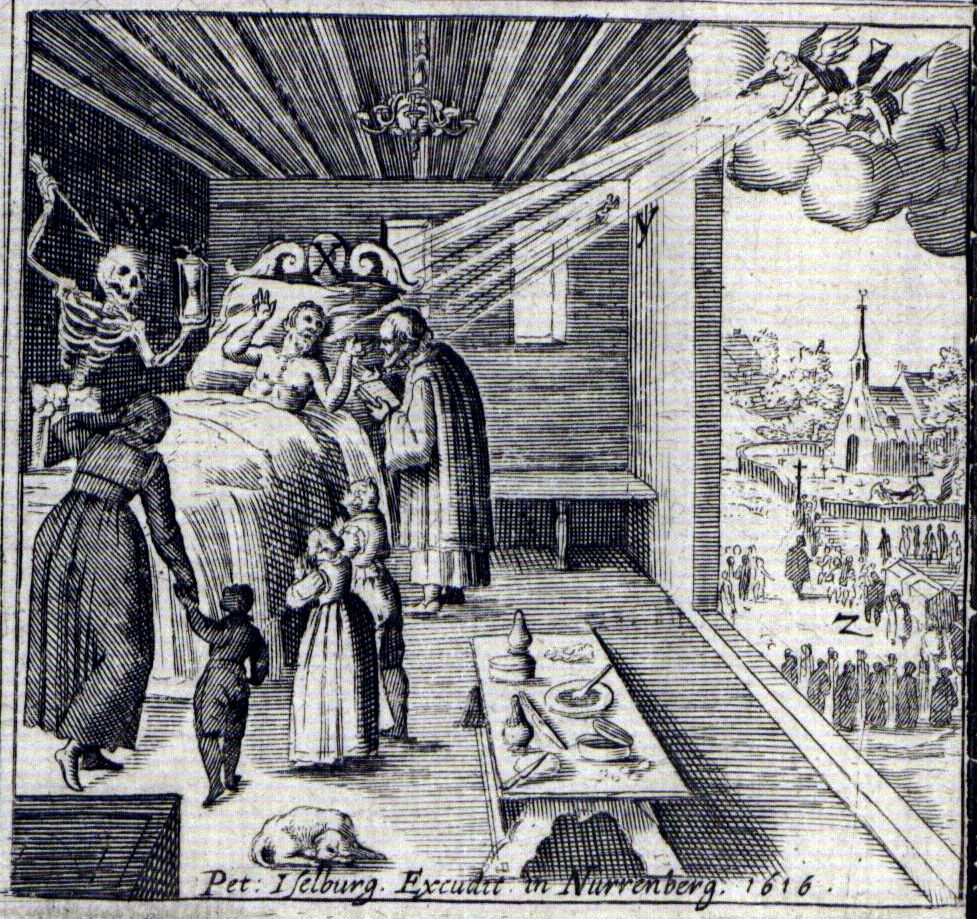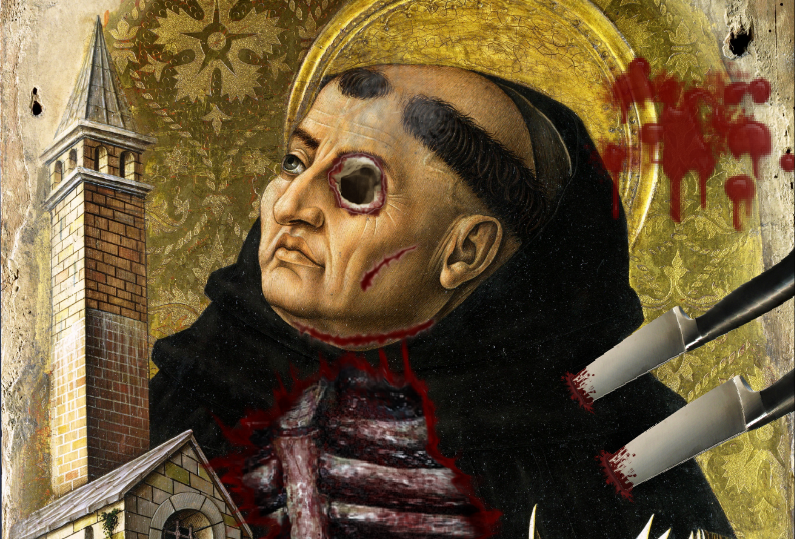If you’ve ever skimmed through St. Thomas Aquinas’ Summa Theologica, a few thoughts have probably crossed your mind. First, “this is a masterpiece!” followed quickly by, “…but why is there no section dealing with a zombie uprising?”
Don’t get me wrong. The Summa is absolutely breathtaking: in its breadth (2,669 articles, each one carefully considered, covering 512 theological and philosophical questions), in its depth (St. Thomas was the most brilliant of the scholastics, one of the brightest minds the Church ever produced, with a genius almost unparalleled in human history), and in its great heights (St. Thomas was also, of course, a great Saint, and a Doctor of the Church).
But the Summa remains unfinished: he died before completing the Third Part, which covers the subject of the end of the world. Perhaps for that reason, Thomas never got around to addressing the moral implications of a Zombie Uprising.
Because the matter is too important not to complete, I humbly submit what I think St. Thomas would (or, perhaps, should) have said on the subject:

Article 1. Whether the souls of those who become zombies are in hell?
Objection 1. It would seem that just as the incorruptibility of the bodies of certain Saints evidences their sanctity and election, the reanimation of the corpses of certain individuals as zombies evidences of their corruption and reprobation.
Objection 2. Further, David proclaims in Psalm 16:9-11, “my heart is glad and my tongue rejoices; my body also will rest secure, because you will not abandon me to the grave, nor will you let your Holy One see decay.” Yet even bodily decay is to be preferred to reanimiation as a zombie. Therfore, those who become zombies would appear to have been wholly forsaken by God at their death, and reprobate.
On the contrary, after Christ tells Peter how he will die (John 21:19), He says of the Beloved Disciple, “If I want him to remain alive until I return, what is that to you? You must follow me” (John 21:22).
I answer that, the grace of bodily incorruptibility is not given to all the Saints, but to a small handful. And just a righteous man’s body may decay, so may it be reanimated as a flesh-mongering zombie. For we know that “[b]y faith Joseph, when his end was near, spoke about the exodus of the Israelites from Egypt and gave instructions about his bones” (Heb. 11:22). Thus, while he lived and died by faith, his body was reduced to bones (Ex. 13:19). For even Martha, the sister of Lazarus, feared that his body would stink of death (John 11:39), though she did not doubt of his sanctity (John 11:24). And just as the bodies of the righteous can be skeletonized, or decay or rot in the earth, they can likewise zombify.
Reply to Objection 1. The bodies of many of the greatest Saints were degraded in their death (Matthew 14:9-10) or after. For while Elijah was preserved from death and corruption (2 Kings 2:11), Elisha was not (2 Kings 13:21). Yet Elisha was not inferior to Elijah in sanctity, as he received a double portion of Elijah’s own spirit (2 Kings 2:9-12). Therefore, the body of a man who dies in the state of grace may be preserved inviolate, may decay in the earth, or may be reanimated as a zombie.
Reply to Objection 2. Peter tells us that the prophetic Psalm 16 was not fulfilled in the life of David, but only in Jesus Christ (Acts 2:25-32). Yet David was a man after God’s own heart (1 Sam. 13:14). Therefore, the corruption of the grave, including zombification, is not proof of reprobation.

Article 2. Whether zombies will experience the bodily resurrection?
Objection 1. It would seem that since zombies have already risen from the dead, they shall not experience the resurrection of the body at the end of time. For Paul, drawing on the image of a harvest, says of the resurrection of the dead that the “body that is sown is perishable, it is raised imperishable” (1 Cor. 15:42). Just as one plant cannot be harvested twice, it would see that zombies, who have already risen as the ravenous undead, shall not rise again in imperishable glory.
Furthermore, for zombies to experience the resurrection of the dead, they would have to die a second time, yet Scripture says that “man is destined to die once, and after that to face judgment” (Heb. 9:27). Therefore, it would seem that zombies cannot die twice, and thus, cannot be resurrected twice.
Objection 2. The Nicene Creed declares, “I look forward to the resurrection of the dead, and the life of the world to come.” Yet, the bodies of zombies are a sight of ghastly horror, and an eternity with, or as, such creatures would not be something to look forward to. Thus, it would seem that zombies shall not participate in this glorious resurrection of the dead.
On the contrary, “a time is coming when all who are in their graves will hear his voice and come out—those who have done good will rise to live, and those who have done evil will rise to be condemned” (John 5:28-29).
I answer that, Scripture provides that everyone will be restored in the resurrection of the body: the elect to eternal glory, and the reprobate to eternal shame. For the LORD said to Daniel, “Multitudes who sleep in the dust of the earth will awake: some to everlasting life, others to shame and everlasting contempt” (Dan. 12:3). Thus, all, whether saved or damned, zombie or otherwise, will stand before the Throne of God in their mortal body at the Judgment.
Reply to Objection 1. The Theologian says that the miracles of Christ were not intended to last for eternity, but for this life only, saying that “the eyes of the blind, that were opened by those acts of our Lord and Saviour Jesus Christ, were again closed in death; and limbs of the paralytics that received strength were loosened again in death; and whatever was for a time made whole in mortal limbs came to nought in the end” (Tractates on John, 17). Thus, we know that Lazarus, raised once from the dead (John 11:44), fell asleep in death again. When Scripture speaks of man’s destiny to die once, then, it is man’s natural destiny being spoken of, not the power of God. For just as Lazarus had to die twice, as did the man who touched Elisha’s bones (2 Kings 13:21), the prophet Elijah never tasted death at all (2 Kings 2:11). Likewise, while a plant does not natural grow to harvest twice, “out of these stones God can raise up children for Abraham” (Mt. 3:9).
Reply to Objection 2. The resurrection will be glorious for the elect, but not for the damned. Yet we look forward to this resurrection because we hope in God, for as Paul says: “I have the same hope in God as these men, that there will be a resurrection of both the righteous and the wicked” (Acts 24:15).
Furthermore, while the bodies of zombies are ghastly now, they shall not be so at the resurrection. For Tertullian tells us that as “life is bestowed by God, so is it restored by Him. As we are when we receive it, so are we when we recover it. To nature, not to injury, are we restored; to our state by birth, not to our condition by accident, do we rise again” (De Resurrectione Carnis, 59). Thus, he promises the healing and glorification of the body from “when it is dead, when it is cold, when it is ghastly, when it is stiff, when it is a corpse” (Id.). That the bodies of zombies are ghastly in this life does not mean that they shall not be restored and glorified in the next. As Paul says, the body “is sown in dishonor, it is raised in glory.” (1 Cor. 15:43).
Originally published on Shameless Popery


